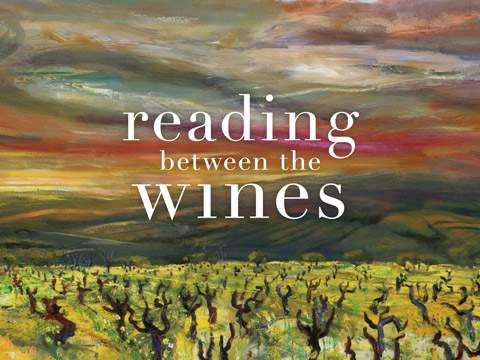By Evan Dawson, Managing Editor
The book about why wine is important is going to end up taking its place among the most important wine books ever written.
Beauty, according to the brilliant importer and writer Terry Theise, is what we're ultimately seeking in life. Start there. Everything else is exposition. And the beauty in Theise's prose is his refusal to be ashamed or embarrassed by genuine emotion.
This is no insignificant point. If you're a man, you can probably think of many times in your life where you fought tears because revealing a soft spot would have been seen as effeminate. If you're a woman, you can probably think of men to whom you've implored, "Don't you ever cry?"
Terry Theise cries. And he laughs, and he thinks, and he's not afraid for you to know it. What's more, he cries about wine. That's perhaps not entirely fair, because for Theise, wine is not something to be scored, but rather a connective tissue that can tap into our deeper emotional selves. Wine can connect generations, even those long since passed. Wine can recall places — sometimes the place of a milestone in life; other times a seemingly routine walk down a quiet path.
His explanation for why scores — and blind tasting, for that matter — are misguided, well, it is extremely powerful stuff. To wit:
The wine was a 1966. So juicy still… What a vintage! A slightly scorched note came on as the fruit faded. Next Jean-Baptiste's wife, Karin, came in, carrying the new baby, with another daughter at her side. The older girl seemed about six. She took the baby, who looked around and cooed. Old wine, new life, what can you do? It all floods in.
How many "points" is this worth? Lives lived in wine; three generations sitting with us and paying tribute to a fourth.
As an importer who knows the power of big business, Theise is careful to say that many wines evoke no real emotion at all. Rather, he seeks out wines with a sense of place, a kind of humanity imbued into the very tannins and acids. Does that sound hokey? Theise wouldn't give a damn if it does.
He stumbles only when he seems to shift and lecture against taking every wine too seriously. It's actually quite an important point — after all, wine lovers are prone to going overboard, as this writer has been known to do. But that section reads more like Theise's subdued cynical id, trying to poke a hole in his sentimentalism. It's the typical condescending "get over yourself" side that must be created in Theise's subconscious simply to offer an occasional break from the emoting.
This book blends into the discussion of where New York wine is heading. Understandably, there is so much effort just to make viable wine that the notion of a wine's special sense of place can be lost or ignored. But the slowly emerging and powerful sense of place in some New York wines are not all that unlike the wines from Germany and Austria and the Loire that Theise loves most. And while New York wines lack the big-money backers that have propped up emerging regions like Walla Walla and, 40 years ago, Napa Valley, Theise's book reminds us why that might be a blessing for wine lovers. The small production wines earn the constant attention of their vintners here. There is room for discovery.
There are so many ideas, so many observations, so many turns of phrase offered in this book that I could highlight them for hours. Instead, I will conclude with this: Buy this book. Read it once, let it sink in, and then read it again.
And open yourself to the kind of emotion that is waiting to be uncorked. The closing line in Reading Between the Wines is the most powerful closing line I have ever read. It haunts me still, and taking a cue from the author, I'm not afraid to admit it moved me to tears.

